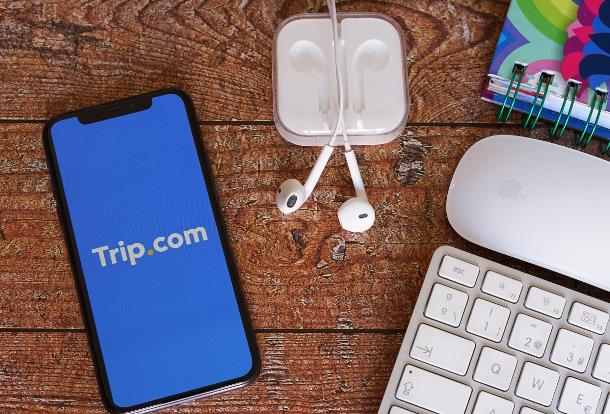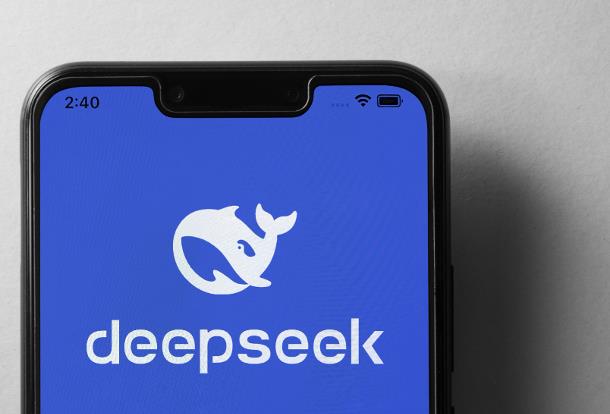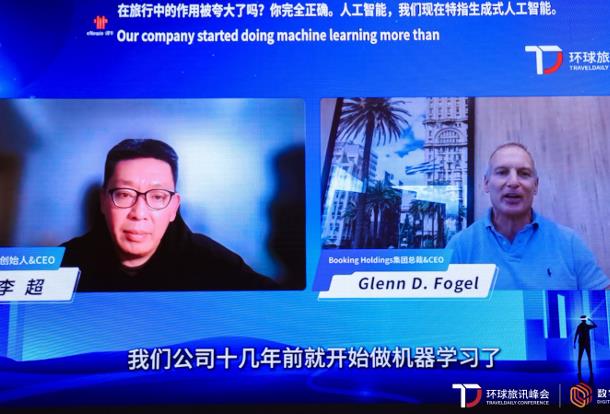ChinaTravelNews, Ritesh Gupta – The massive amount of rich data that China is generating is expected to strengthen its position globally in the arena of artificial intelligence (AI) research.
“China could lead the world in AI research in the coming years,” remarked Monty Doshi, Director of Technology and Architecture, APACMEA, Travelport, adding that AI is only as effective as the data for learning, training and improving. “China is garnering attention because of the amount of rich data that it is generating – 90% of data that exists today was produced in the last couple of years. As the data available becomes even bigger, the amount of information available for AI systems to learn from would be significantly larger and would make them much more powerful. The key to this from China’s perspective is how they leverage the data in order to power AI.”
From the travel sector’s perspective, there is search data, booking data and shopping data, all of which will be crucial in building AI capabilities further. Travelport is performing more than 11 billion searches per month, putting it in a position to offer data-focused products. This data is already being used by the industry to answer critical questions like “what is the right time to buy”, he said.

Monty Doshi, Director of Technology and Architecture, APACMEA, Travelport
Solving travel-related pain points
Emerging technologies, AI included, are eradicating pain points in fragmented booking experiences involving multiple sessions and devices, and adding value in various phases of the travel journey – inspiration, shopping, booking, pre-trip, in-trip and post-trip.
“A typical accommodation purchase journey tends to have 45 touchpoints. AI is already simplifying decision-making for travelers,” he said. One area is the right time to buy as a traveler. Another area is fraud prevention – how to counter illegitimate online transactions. These are being facilitated by AI via supervised and unsupervised machine learning, he said.
AI is also playing its part in “inspiration”. A report published by IDC indicated that China’s spending on augmented reality (AR) and virtual reality (VR) is projected to cross $65 billion in 2023, and there is a huge potential for AI to augment the travel experience. For example, AI can deliver on language translation for travelers in a foreign destination.
To make AI work, an organization needs to prepare diligently to refine AI capabilities, having quality data and the algorithm to derive the desired result such as a product recommendation, and the human expertise to ask the right question.
From Travelport’s perspective, there are other technologies in addition to AI that have to be considered. These include mobile devices, Internet of Things (IoT), big data and cloud computing. In a connected world, there is an opportunity to interact with the traveler throughout their journey. “AI in isolation doesn’t work,” said Mr. Doshi.
He mentioned that the blend of cloud and analytics can help in delivering relevant and accurate information such as real-time flight alerts to travelers. “It all boils down to the richness and the quality of data. It is important to have the ability to mine a rich dataset. That’s where AI is effective. Also, with large amounts of data, a big question then is how to process it. That’s where cloud comes in,” he said.
AI to support search and travel shopping
He noted that AI application has made progress in search technology. “We do have a global innovation program so we experiment AI in different capabilities, including AR, VR and cognitive AI (facial recognition, voice, natural language processing). There is feedback in terms of how they are impacting our customers in China. But an area where we have made significant progress over the last few years is search.” Travelport’s AI-driven platform not only powers search results for OTAs, but also supports multiple channels, from mobile devices to social platforms and messaging platforms. “This is vital in China,” he said.
The number of searches for travel products has grown immensely. As a result, there is a need to focus on three areas – speed, accuracy and relevance.
“Five years ago, we performed about 1.5 billion searches per month. In those search results, we would provide 300 to 400 different options for travelers. We have now grown to more than 11 billion searches per month, and are now pricing around six billion itineraries each day,” he said.
The demand cycle with mobile applications and meta searches through comparison sites has changed. The massive growth in consumer demand requires processing more and more searches at faster speeds.
Travelport is using AI and machine learning to improve this search response time by eliminating waste and identifying relevant and accurate search results for the OTA customer. This ensures the speed, accuracy and customization of the results.
“We can now eliminate waste from those processes and get feedback loops into search, allowing us to provide highly relevant options. We can intelligently cache at the edge of the cloud so that we have the results stored and ready to go rather than recalculating them every time, which was challenging when you’re working with volatile inventory such as airfare,” said Mr. Doshi.
From a content sourcing and supplier perspective, AI adds significant value. “For airlines, accuracy counts. But the more the system of airlines is hit, the higher the expenditure for them. We reduce the number of times we have to hit an airline’s system for live data. This way AI and intelligent caching is reducing the cost for airlines. Because it is AI that intelligently determines when we need to refresh the cache to update the data needed,” he said.
This is relevant for airlines considering the fact with NDC; it is the airlines that are going to make the offer and not GDS companies that are going to make use of data to make an itinerary. “This way we are improving our interactivity with all the suppliers, including all the airlines.”
Ming Foong, Managing Director, Asia, Travelport will attend the upcoming 2019 TravelDaily Conference on August 27-29 in Shanghai and join the Executive Roundtable of What Are the Genuine Needs of Today's Global Travelers? on August 28.




